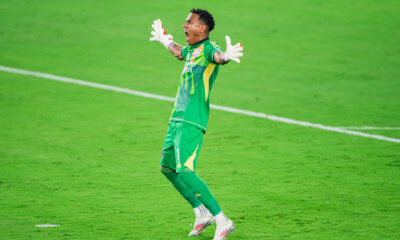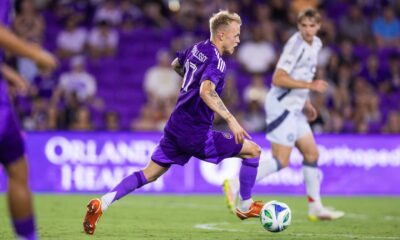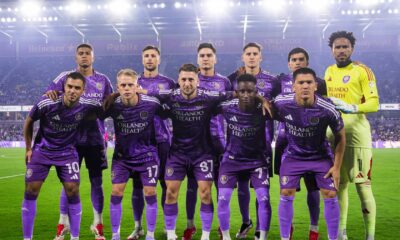Orlando City
Top 10 Moments of 2024: Orlando City Wins Tight Best-of-Three Playoff Series against Charlotte FC
In our No. 6 moment of the year, Orlando City made the fans sweat it out but eventually advanced past Charlotte in the best-of-three series.
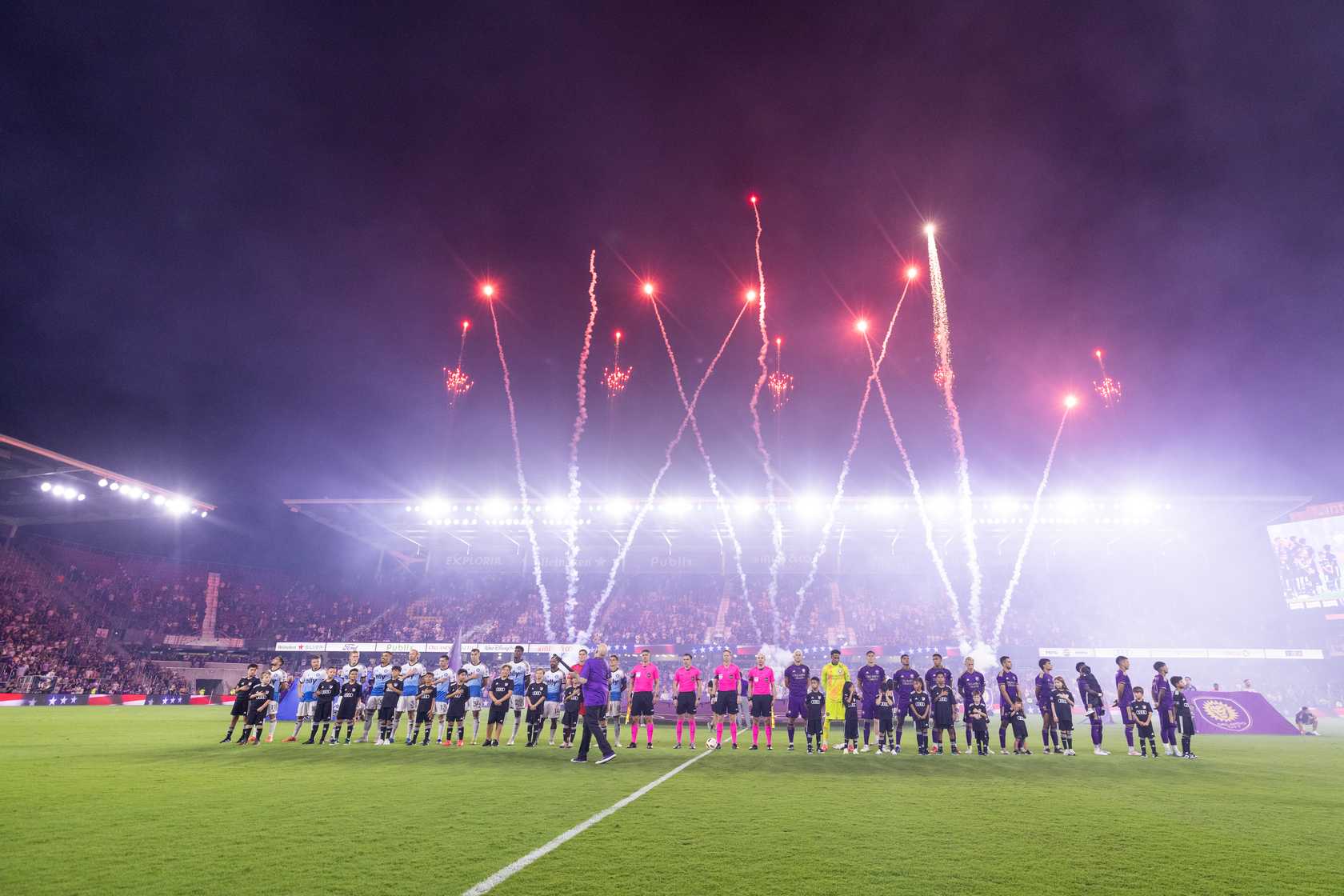
As we count down to the new year of 2025 — which will be Orlando City’s 11th in MLS, the Orlando Pride’s 10th in the NWSL, and OCB’s third in MLS NEXT Pro — and say goodbye to 2024, it’s time to look back at the club’s 10 best moments of the year as selected by The Mane Land staff via vote.
I believe Major League Soccer is unique among the world’s leagues in using a best-of-three series to determine a winner in the knockout round of a tournament, and while I do not like it, I did like the result from Orlando City’s three-game series against Charlotte FC during the opening round of the 2024 MLS playoffs, because the Lions advanced by winning games one and three, eliminating Charlotte and moving on to the conference semifinals.
Orlando City entered the playoffs as one of the hottest teams in MLS, having won 10 of its last 14 games and vaulting all the way up to fourth place in the Eastern Conference. Charlotte had been hot as well, but not for as long, as the North Carolina-based club had only won five of its last 14 games, but four of those wins were in the team’s most recent five games. However, Charlotte had scored an impressive 13 goals during those four wins. On the season, the teams ended up separated by only one point, as Orlando City ended with 52 and Charlotte finished with 51. The teams met twice during the regular season, drawing 2-2 on June 19 in Charlotte and Orlando City winning 2-0 at home on Sept. 18.
As with any series between the two teams closest in seed, analysts were split on who they thought would advance, but with home field advantage in two of the three games, including the tone-setting game one, the Lions held the advantage in the betting markets, with better odds to advance than their opponents from North Carolina.
Those in favor of Orlando City pointed to the recent hot form, the consistent starting lineup with players who knew their roles coming in off the bench, the recent win head-to-head, the advantage in goals scored (+13 for the season), and the aforementioned home-field advantage. Those who favored Charlotte pointed to the even more recent hot form; the team’s stingy defense, which had conceded the second-fewest goals in MLS; its counterattacking style that was a good antidote to Orlando City’s penchant for winning the possession battle; and a recent 1-1 draw against MLS Shield winners Inter Miami, showing that Charlotte could hold even the best offenses to very little.
As a fan of several other sports that employ best-of-[insert odd number here] playoff rules, I felt confident in Orlando City advancing, because the history of playoff series’ is that the team with the better seed, and therefore the team that has home-field advantage, wins most often. There is a reason the Lions had the better seed, and it is that they had a better regular season. As is seen in college basketball every March, in one game, anything can happen, but over time in a series, the better team usually wins, and I thought that Orlando City was a much better team.
The opening game of the series went much as I had expected it to, and I felt even more confident in my thought that Orlando City would advance. The Lions came out and really took it to Charlotte from the opening whistle, dominating possession, peppering the Charlotte goal with shots, and only allowing two shots on goal all game long for Pedro Gallese to save, earning a comfortable 2-0 victory and placing themselves one win from advancing to the conference semifinals.
Facundo Torres opened the scoring in the first half with a spectacular volley in the 32nd minute, and that early goal forced Charlotte to have to play differently for the final two-thirds of the game, because now the visitors had to engage and could not just sit back and hope for a smash-and-grab win.
Fellow Designated Player Martín Ojeda put the game to bed with his goal nearly 32 minutes into the second half, almost perfect symmetry with the first goal in terms of minutes after the beginning of the half.
Orlando City’s performance looked a lot like we had seen during the final few months of the season, and while any game on the road is always difficult, it seemed like the Lions had found an excellent game plan to defeat Charlotte and should go with something similar on the road for game two.
They most certainly did not do this.
Orlando City’s offensive performance on Nov. 1 was one of the worst I have ever seen by the club, and the data backs it up. I am not a member of the cult of xG (expected goals), who thinks it is the be-all, end-all of statistics, but I do think xG is a good indicator of the health of a team’s offense and whether it was getting shots in good locations. Orlando City’s xG in Game 2 was 0.3, the team’s worst of the season and tied for eighth worst since Opta started tracking xG in MLS games in 2018. For context, Orlando City has played more than 230 MLS games since the beginning of the 2018 season, so Game 2’s xG is in the bottom 4%.
(For the masochists out there, April 24, 2022 and July 18, 2019 are the club’s two worst offensive performances in the xG tracking era, both with 0.1 xG. The less said about those games the better. I have already said too much.)
Back to Game 2, Orlando City just did not seem to bring any energy to the game, even knowing that a win would push the team through to the next round, and earn a bye week with no need to play a Game 3. With the huge safety net of a guaranteed home game if they lost, the Lions should have played freely and openly, but instead they played defensively, almost as if they were playing more so to keep Charlotte from scoring than to actually go out and win the game themselves.
Even the team’s substitution patterns seemed off, as while the usual Duncan McGuire-for-Ramiro Enrique swap took place around the normal time of 60 minutes (specifically the 56th minute in this game), Oscar Pareja subbed Nico Lodeiro, and not Luis Muriel, for Ojeda in the 74th minute, and he brought Muriel in for Iván Angulo in the 88th minute. Muriel had been one of the team’s most dangerous players in recent months, a supersub off the bench who unlocked defenses with his vision and passing ability, but Pareja only gave him three minutes and stoppage time in this game, despite knowing that Charlotte was not much of a threat offensively and that one goal would likely be too much for hosts to overcome.
Even with their seemingly defensive focused performance, Orlando City almost managed to get a late winner anyway, but a tight offside call nullified a brilliant strike by Torres in second half stoppage time, wiping out what likely would have been the series-deciding goal. On replay review it looked incredibly tight, so the call on the field would likely have stood had they called it a goal, but they called it offside, and with that, it was wiped off the board, and the game went to penalties.
Historically Orlando City had been great in penalty shootouts, but the same team that showed up disinterested in scoring goals during open play also showed up during the penalty kicks, with Lodeiro getting his shot saved, Robin Jansson missing his kick over the bar, Muriel scoring (maybe should have brought him in sooner, just saying), but then McGuire getting saved, and since Charlotte did not miss any kicks, that was that, and the Lions lost 0-0 (3-1 on penalties). The loss wiped out the second straight shutout by the defense, including several outstanding saves by Gallese, as the Lions demonstrated that in MLS the old axiom of you can’t lose if they don’t score does not always apply.
Orlando City returned home for the winner-take-all Game 3, but although the Lions were far more lively on offense (19 shots, much better than that putrid three from the prior game) they could not get anything past Charlotte’s Kristijan Kahlina. An unexpectedly high bounce on a clearance by Charlotte went over Jansson’s head, and Charlotte took advantage with a quick counter, ending with a cross and a goal by Karol Swiderski on a shot that deflected in off of Rodrigo Schlegel. It is hard to tell if Gallese would have been able to save the ball if not for the deflection. He did seem to be well-placed to at least have a chance, but that did not matter as the deflection went away from where he was and went into the back of the net.
The Lions then started getting even more aggressive and pushing everyone forward, but to no avail. They used their final substitution to bring on David Brekalo for Schlegel, seemingly a like-for-like substitution instead of offense-for-defenese, but with Brekalo’s technical ability and ability to win aerial duels, he was probably the best option to try to get a goal, despite being a central defender given the bench options available.
As the game went to the dying minutes, Cesar Araujo just missed with a rocket from 28 yards, but then the offensive push paid off, as Wilder Cartagena put a cross into the danger zone right in the center of the box, and Charlotte defender Djibril Diani pulled McGuire down as he went to try to win the cross, earning Orlando City a penalty after an excruciatingly long video review delay and due to the fact that McGuire dislocated his shoulder on the foul.
The penalty was (finally) given, but after the poor performance in the shootout the game prior, there was a sense of excitement but concern, and it was warranted as Kahlina made yet another huge save, diving low to his right to block Torres’ penalty. Thankfully for the good guys in purple, the rebound went right back to Torres, and he made no mistake on his second shot, tying the game at 1-1 and sending it to another penalty shootout moments later when the full time whistle blew.
Both teams probably felt good going into the penalty shootout — Charlotte due to its dominant penalty performance in Game 2 and Orlando City due to the momentum of having found an equalizing lifeline just moments earlier. History does not always repeat itself, but it does often rhyme, and just as Kahlina was on fire with two saves in the previous shootout, Gallese was up to the task in Game 3, saving penalties one and two in front of The Wall.
His offensive partners also delivered, as Muriel was again unflappable scoring the first, and then unexpectedly it was Kyle Smith who stepped up for the second. If he shoots all his penalties as he did the one he took in this game, he should be in contention to take them all the time, because he put that ball in an unstoppable location at pace. Torres made up for his miss during regulation by making his shot in the shootout, but Charlotte answered, though Gallese again went the correct direction and nearly made it three straight saves.
Up 3-1 and with the ability to win the game and move Orlando City to the conference semifinals, it was another defender, Rafael Santos, who stepped up to the ball. After a routine that involved moving backwards, sideways, jumping and nearly stopping, Santos ripped a shot to the lower corner, and though Kahlina went the correct way, the ball was hit with too much pace, and Orlando City had won and advanced to the next round.
This series will not be one that is fondly recalled as the years go by, especially the strangely poor performance in Game 2, but there were moments of greatness that will go down in Orlando City lore. The dominant Game 1 victory, McGuire suffering a dislocated shoulder to earn a penalty (and then getting it popped back in in the locker room and sprinting to try to get back onto the field during the shootout), the last-gasp goal to put Game 3 into a shootout in the most Cardiac Cats way possible, Gallese’s shootout heroics, Muriel’s unflappability, and the left back and right back hitting perhaps the best penalties of the season are all moments I will definitely remember from this series. It’s also a big part of why winning that playoff series finished at No. 6 on our list of top 10 moments of 2024.
Come back through New Year’s Eve as we count down the remainder of the top 10 moments of 2024 for Orlando City, the Orlando Pride, and OCB.
Previous Top Moments of 2024
10. Orlando City’s massive second-half surge clinches top-four spot in Eastern Conference.
9. The Orlando Pride sign Zambian international striker Barbra Banda ahead of the 2024 season.
8. Facundo Torres scores his 47th goal for Orlando City, breaking the Lions’ all-time goal record.
7. Marta’s magical goal pushes the Orlando Pride past Kansas City and into the NWSL Championship.
Lion Links
Lion Links: 6/5/25
MLS All-Star voting update, Kerry Abello shines with USWNT, Sergio Zapata earns recognition, and more.
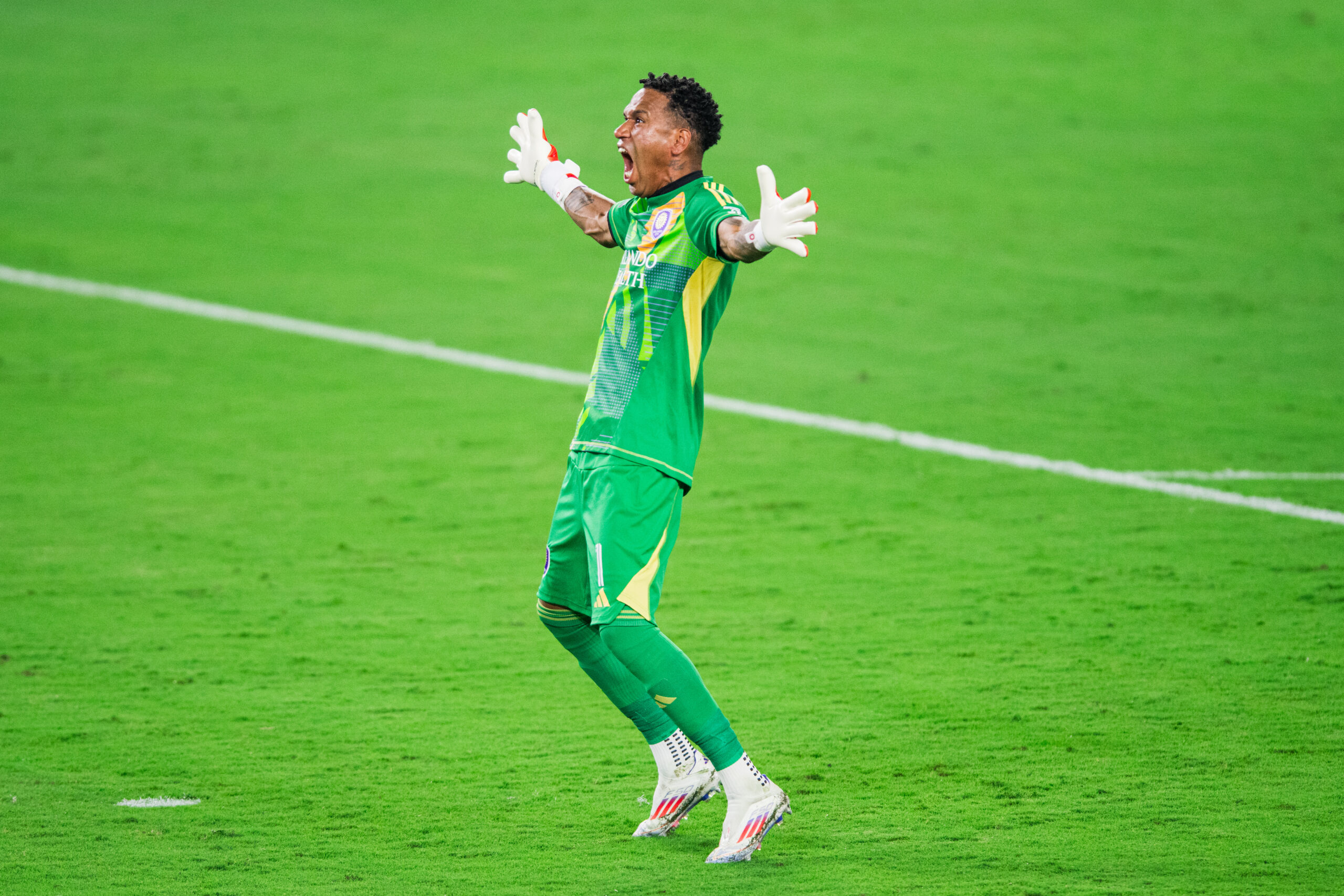
How’s it going, Mane Landers? I hope this week has been treating you well as we enjoy some international soccer and prepare for the return of NWSL action this weekend. Before we jump right into today’s links, let’s all wish a happy birthday to Orlando City B midfielder Dylan Judelson!
Pair of Lions Lead MLS All-Star Voting
Voting for this year’s MLS All-Star Game remains underway and an update was provided on which players are leading at each position. Orlando City defender Alex Freeman leads all right backs as he enjoys a breakout season. I was aware of the buzz he’s been getting this year, but it’s still surprising to see a Lion as an All-Star frontrunner. What’s even more surprising is that Pedro Gallese leads the voting for goalkeepers. The Peruvian made a rough gaffe last week, but has otherwise had a stellar season with Orlando that’s included seven clean sheets. Voting will close on June 11, so make sure to get those votes in before then.
Kerry Abello Impresses With USMNT
Orlando Pride defender Kerry Abello made her first appearance for the United States Women’s National Team Tuesday, playing every minute of the 4-0 win over Jamaica. The versatility she’s shown with the Pride translated well in Head Coach Emma Hayes’ system, as she was able to hold things down defensively and contribute to the attack as well. Abello could end up bringing solid depth to the USWNT as Hayes figures out the team’s future core of players. Enjoy this video from the USWNT that provides a look behind the scenes of Abello’s international debut.
Sergio Zapata Named Player of the Month
Sergio Zapata scored a whopping 11 goals for Orlando City’s U-19 team over the course of just four matches in May, winning the honor of MLS NEXT Player of the Month. He had three hat tricks last month, including one against Hoosier Premier at MLS NEXT Fest. Zapata committed to Cornell, so hopefully we’ll get to see him tear it up in the Ivy League over the next couple of years.
Zack Steffen Sustains Knee Injury
Goalkeeper Zack Steffen injured his knee at the United States Men’s National Team’s training camp and will reportedly miss this summer’s Concacaf Gold Cup. It’s rough news for the 30-year-old, as he was expected to compete with Matt Turner for the starting job with the USMNT. He’s been having a great season with the Colorado Rapids and returned to the club for further evaluation on the injury.
Free Kicks
- Orlando City and Orlando Health celebrated 29 elementary school students by giving them jerseys for their academic achievements.
- Sporting Kansas City forward Dejan Joveljic won MLS Goal of the Matchday for his acrobatic strike against the Houston Dynamo.
- Former Pride forward Messiah Bright signed a contract extension with the Houston Dash through the 2026 season with an option for 2027. The Pride traded Bright to Angel City FC in 2024 and she was traded to the Dash in January of this year.
- Mexico will be without San Diego FC forward Chucky Lozano for the Gold Cup due to a hamstring injury.
- Cristiano Ronaldo scored the winner for Portugal to beat Germany 2-1 to reach the UEFA Nations League final. It was Portugal’s first win over Germany in 25 years, and it will face either France or Spain in the final on Sunday.
- Simone Inzaghi left Inter Milan and is now the manager of Al-Hilal ahead of the Saudi Arabian club’s Club World Cup campaign.
That’s all I have for you this time around. I hope you all have a wonderful Thursday and rest of your week!
Lion Links
Lion Links: 6/4/25
USWNT wins as Abello gets first cap, Orlando Pride’s Concacaf W Champions Cup draw, Club World Cup in Orlando, and more.
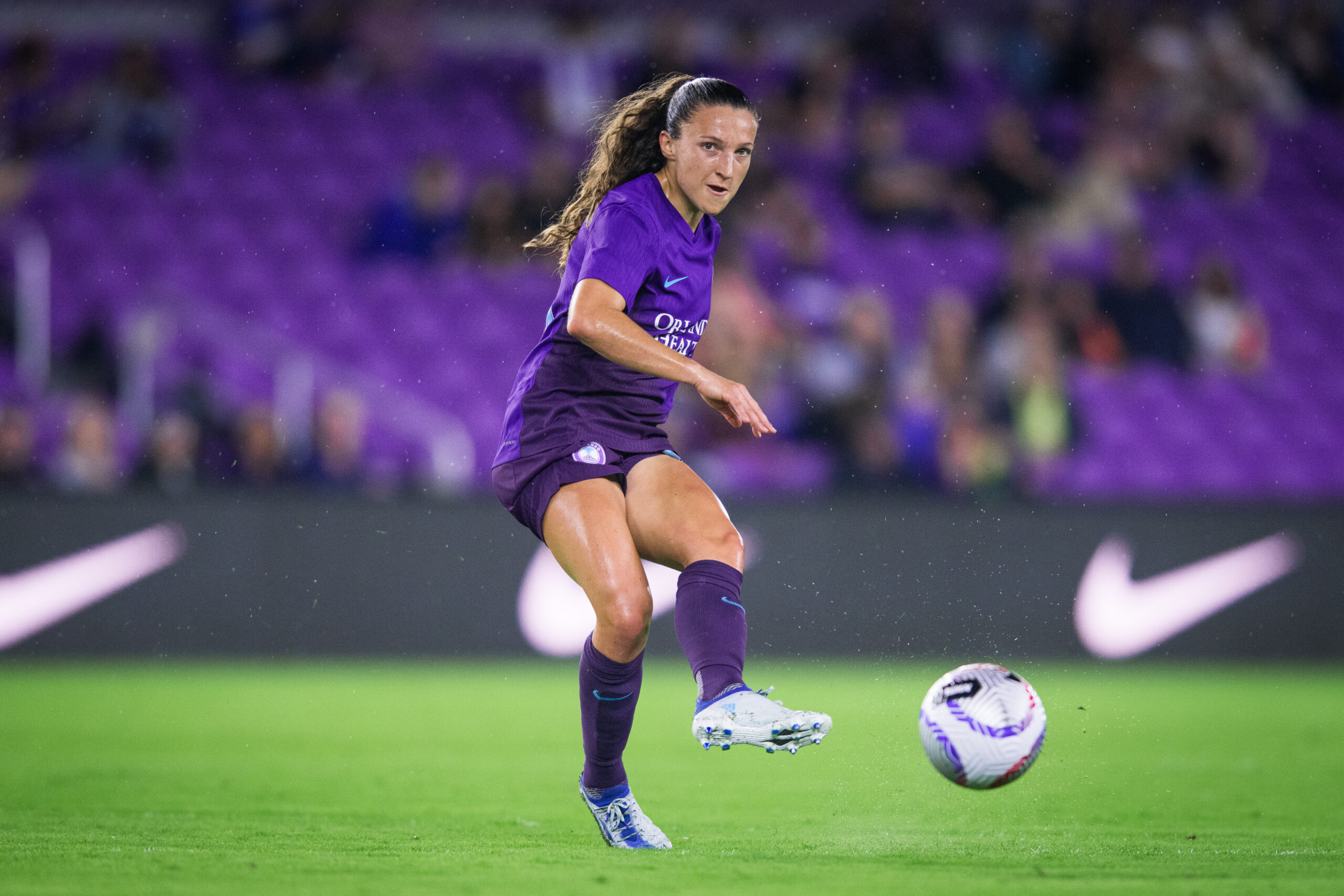
Welcome to Wednesday, Mane Landers. Tuesday was a busy soccer day, especially on the women’s side. We have plenty of Orlando Pride news, and the USWNT secured yet another victory. I’m hoping the good vibes continue since I’ll be coming down to Orlando for the Pride’s match this Saturday. If you’re going to the match, let me know, as I’d love to meet as many of our readers as possible. For now, let’s get to the links.
USWNT Blanks Jamaica
The USWNT defeated Jamaica 4-0 in a friendly at Energizer Park in St. Louis. The Orlando Pride’s Kerry Abello got her first start and her first cap in the match. She went the full 90 minutes and almost had her first international goal in the second half, but the chance went a bit wide of the right post. Ally Sentnor and Lynn Biyendolo each scored a brace as the U.S. rolled to an easy win.
Pride Internationals
Abello wasn’t the only Pride player to make an international appearance. Marta returned to international duty for Brazil getting the start and the captain’s armband in a 2-1 win over Japan. Both Grace Chanda and Barbra Banda started for Zambia in the 2-0 loss to South Africa in the Three Nations Challenge. Congratulations are also due to Zara Chavoshi, who earned her first cap with the Canadian Women’s National Team in the match against Haiti.
Concacaf W Champions Cup Draw
The Concacaf W Champions Cup draw happened yesterday and the Orlando Pride are in Group A with Club America Femenil, CF Pachuca Femenil, LD Alajuelense, and Chorrillo FC. Group B consists of NJ/NY Gotham FC, the Washington Spirit, CF Monterrey Femenil, Vancouver Rise FC Academy, and Alianza Women FC. The competition kicks off Aug. 19-21.
FIFA Loves Orlando
FIFA President Gianni Infantino sat for an interview with Jamie Seh of WKMG Orlando. Infantino spoke about the upcoming Club World Cup matches at Inter&Co Stadium and Camping World Stadium. FIFA loves Orlando enough for the city to host the Club World Cup, but not the actual World Cup. Here is the schedule for the matches in Orlando. We will be bringing you coverage of these matches.
Free Kicks
- USWNT midfielder Korbin Albert is heading to eight-time European champions OL Lyonnes on a free transfer.
- Albert will be joining Washington Spirit head coach Jonatan Giraldez who is leaving the Spirit midseason to coach OL Lyonnes.
- Chicago Fire owner Joe Mansueto has plans for a $650 million, 22,000-seat, soccer-specific stadium. It will be built in the area known as “The 78.”
- Former Lion Daryl Dike will have a new manager, as West Bromwich Albion has appointed Ryan Mason to a three-year contract. Mason comes from Tottenham Hotspur, where he was Ange Postecoglou’s assistant.
- USMNT coach Mauricio Pochettino compared Christian Pulisic to Lionel Messi, though probably not in the way you are thinking.
- The U-20 U.S. Women’s National Team defeated Costa Rica 4-0 to take first place in its third and final Group A match at the 2025 Concacaf Women’s U-20 Championship.
- The Orlando City Academy teams start play in the 2025 Patterson Cup today. The tournament runs through the the June 8.
That will do it for today. Check back as we get you ready for the return of the Orlando Pride this weekend. Vamos Orlando!
Lion Links
Lion Links: 6/3/25
Orlando City B announces signings, details of Concacaf W Champions Cup, UEFA Nations League preview, and more.
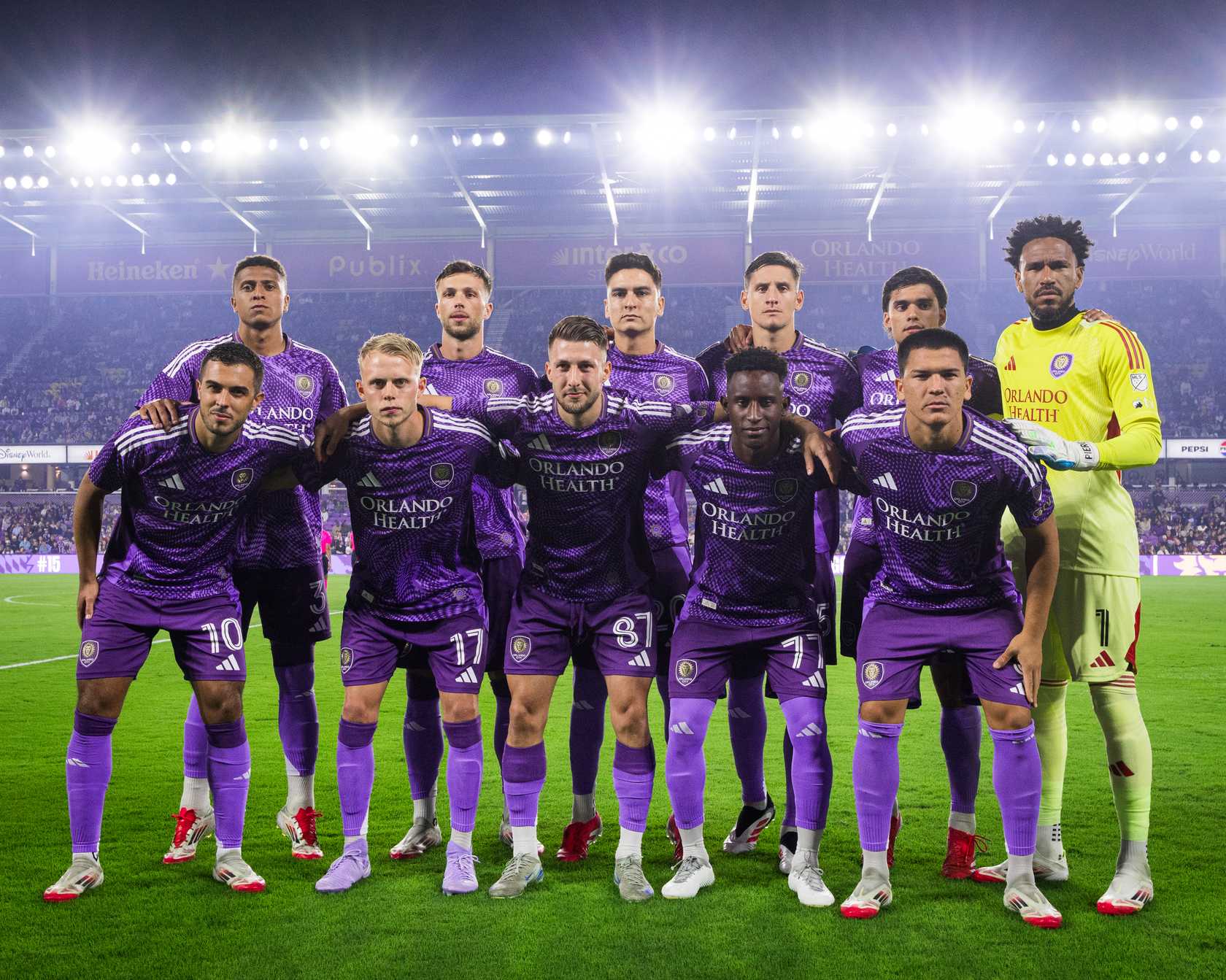
Good morning, everyone. It’s been a pretty brutal last two games for Orlando City, there’s no getting around that fact. While it’s never fun to not have the team in action, a two-week break between games maybe isn’t the worst thing in this particular case. Even though it’ll be a minute before the Lions are back in action, we still have plenty of things to talk about, so let’s get into today’s links.
Orlando City B Announces Signings
Orlando City B announced on Monday that it has signed Clovis Archange and Jackson Platts to MLS NEXT Pro contracts. The pair are graduates of the Orlando City Development Academy and were part of the team that won the U-18 Generation Adidas Cup earlier this year. The 18-year-old Platts captained the team in the final, while Archange was named as one of the players to watch before the tournament started. They’ve both featured for their countries at the youth level, with Platts appearing for the United States U-16 and U-18 teams, and Archange suiting up for Canada’s U-17 side. Congratulations to both players!
Concacaf Announces W Champions Cup Details
Concacaf has named the 10 teams that will participate 2025-2026 Concacaf W Champions Cup and has announced the pots for tonight’s draw. The Orlando Pride are one of three American teams participating in the second year of the competition, and have been placed into Pot 2. Teams will be divided into two groups of five, with each team facing every club in its group once, and the top two sides from each group then advancing to the semifinals. The winner gets a spot in the 2027 FIFA Women’s Champions Cup, and the FIFA Women’s Club World Cup, which is set to be held for the first time in 2028. The draw takes place tonight at 8 p.m.
UEFA Nations League Preview
The UEFA Nations League returns this week, with the semifinals set for tomorrow and Thursday, and the third-place game and final taking place on Sunday. Things get started on Wednesday afternoon with Germany facing off against Portugal in Munich. Germany put away Italy 5-4 on aggregate in the quarterfinals to get to the semis for the first time, while Portugal beat Denmark 5-2, and is hunting for its second Nations League trophy. Thursday has Spain taking on France in Stuttgart. The Spanish beat the Netherlands on penalties in the semis to get here, while France took out Croatia on penalties to punch its ticket. There’s plenty of recent history in this one as these teams also met in the semifinals of Euro 2024 last year, with Spain claiming a 2-1 win.
Transfer Rumor Roundup
The transfer rumor mill has kicked into full swing, so let’s catch up on some of the big talking points. Starting in England, Manchester United has reportedly increased its interest in Brian Mbuemo, with the Brentford forward said to also be interested in moving to the club. There are said to be a number of Premier League teams interested in signing Southampton midfielder Tyler Dibling after his team was relegated to the Championship this season. Jobe Bellingham will reportedly follow in his brother Jude’s footsteps, as he’s reportedly decided to join Borussia Dortmund. Finally, Inter Milan is reportedly interested in signing Marcus Rashford as the Italians look to rebuild the squad following a brutal defeat in the UEFA Champions League final.
Free Kicks
- Here’s a first look at Alex Freeman in his USMNT kit:
- Orlando City dropped two spots to No.9 in ESPN.com’s MLS power rankings.
- Mancester City’s Mateo Kovacic will miss the Club World Cup after having surgery for an Achilles injury.
- Maurizio Sarri has returned to Lazio as head coach just over a year after resigning from the position.
- Atletico Madrid has signed Antoine Griezmann to a new contract.
That’s all I have for you this morning. Vamos Orlando!
-
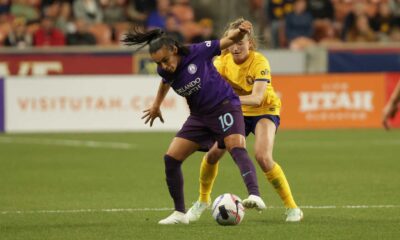
 Orlando Pride2 weeks ago
Orlando Pride2 weeks agoOrlando Pride vs. Utah Royals: Preview, How to Watch, TV Info, Live Stream, Lineups, Match Thread, and More
-
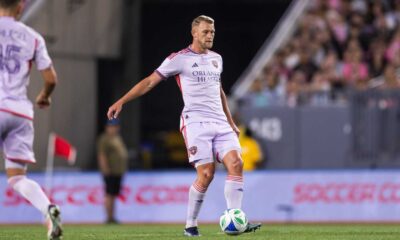
 Orlando City2 weeks ago
Orlando City2 weeks agoOrlando City vs. Portland Timbers: Preview, How to Watch, TV Info, Live Stream, Lineups, Match Thread, and More
-

 Orlando City2 weeks ago
Orlando City2 weeks agoOrlando City vs. Nashville SC: Five Takeaways
-
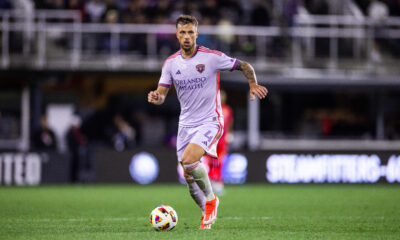
 Lion Links7 days ago
Lion Links7 days agoLion Links: 5/30/25
-
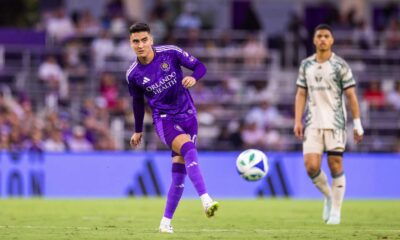
 Orlando City2 weeks ago
Orlando City2 weeks agoOrlando City vs. Portland Timbers: Final Score 1-0 as Lions Tie Club-Record 12-Game Unbeaten Streak
-
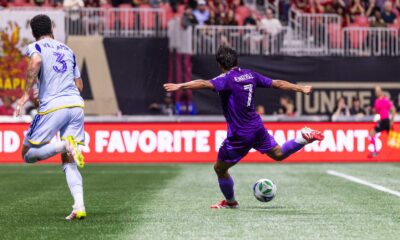
 Orlando City1 week ago
Orlando City1 week agoOrlando City vs. Atlanta United: Final Score 3-2 as Late Araujo Red Card Turns Orlando Lead into a Loss
-
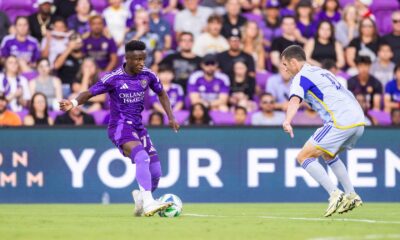
 Orlando City1 week ago
Orlando City1 week agoOrlando City vs. Atlanta United: Preview, How to Watch, TV Info, Live Stream, Lineups, Match Thread, and More
-
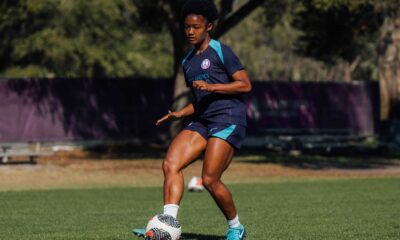
 Orlando Pride1 week ago
Orlando Pride1 week agoOrlando Pride Sign Forward Simone Jackson Through 2028


